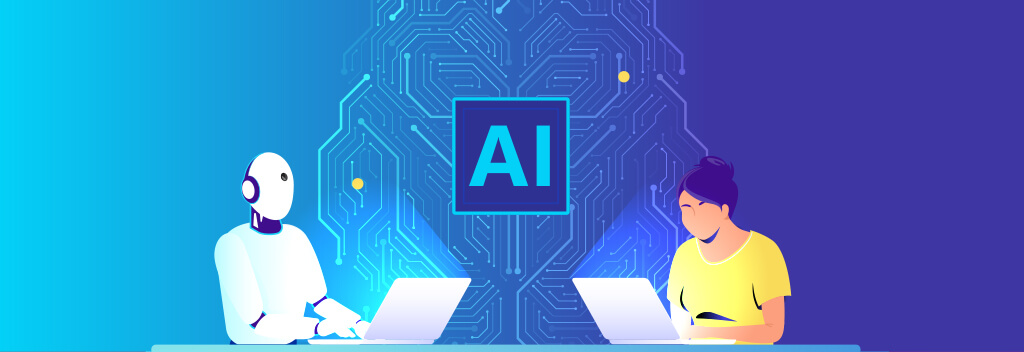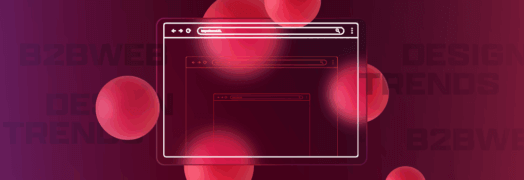Artificial Intelligence (AI) is revolutionizing every part of how businesses operate digitally, and B2B website design is no exception. With AI-driven tools reshaping user experience (UX), personalization, and content delivery, B2B companies must evolve their web design strategies or risk being left behind.
In this blog, we will explore the impact of AI on B2B website design and practical ways your business can adapt to stay competitive.
Personalized user experiences
AI enables dynamic personalization by analyzing user behavior, demographics, and intent. Instead of offering a one-size-fits-all website, businesses can now deliver tailored experiences to each visitor, showcasing relevant products, content, or CTAs based on real-time data.
How to adapt:
- Integrate AI-powered personalization tools (e.g., Dynamic Yield, Adobe Target).
- Use behavioral data to create segmented content experiences.
- A/B test dynamic elements like headlines, CTAs, and images.
Smarter chatbots & conversational interfaces
AI-powered chatbots are both complementing and replacing static contact forms and offering 24/7 support. In B2B, where sales cycles are longer and more complex, these bots guide users, qualify leads, and schedule demos, improving engagement and conversion rates.
How to adapt:
- Deploy AI chatbots (like Drift or Intercom) that integrate with your CRM.
- Train bots on FAQs, product data, and sales workflows.
- Use chat transcripts to refine customer journey mapping.
Enhanced SEO with AI tools
AI tools are transforming SEO strategies by analyzing trends, predicting keyword opportunities, and optimizing content automatically. This ensures your B2B website ranks higher in an increasingly competitive landscape.
How to adapt:
- Use AI tools like Clearscope, Surfer SEO, or MarketMuse to optimize content.
- Leverage NLP-based keyword research and topic modeling.
- Monitor AI-generated SEO audits to fix technical issues faster.
Faster design & development cycles
AI-assisted design platforms (like AI in Adobe Creative Cloud) can now generate layouts, color palettes, and even code snippets. For B2B sites, this means faster turnaround and more time to think about strategy.
How to adapt:
- Use AI tools to prototype landing pages or campaign-specific microsites.
- Leverage design suggestions from AI to improve UX/UI.
- Automated basic design tasks to free up time for brand storytelling.
Predictive analytics for lead generation
AI analyzes patterns to predict which visitors are most likely to convert, enabling proactive engagement. This is particularly valuable in B2B, where lead quality matters more than quantity.
How to adapt:
- Integrate predictive lead scoring tools like Leadspace or 6sense.
- Customize CTAs based on AI-generated propensity models, meaning businesses can predict the likelihood of a visitor taking a specific action.
- Align marketing automation tools with AI insights.
Content creation and optimization
AI can now assist with content ideation, creation, and optimization – speeding up blog creation, case studies, and product descriptions while maintaining quality. While all thought leadership should be drafted by the experts at your company, AI can provide support and research for the writing process.
How to adapt:
- Use tools like Jasper, Writesonic, or ChatGPT to provide an outline, generate additional ideas, give research sources, or to help rewrite pieces of existing thought leadership content.
- Incorporate AI-generated summaries or product descriptions into web pages.
- Continuously analyze performance to refine your content strategy.
AI is not just a buzzword – it’s a powerful tool for B2B website performance, customer engagement, and operational efficiency. The key is to treat AI as a partner in your web strategy, not just a tool. By embracing AI-driven design, personalization, and analytics, you can future-proof your digital presence and stay ahead of the competition.
Contact us to learn more about how to craft a B2B web design and marketing strategy.



